Extinction Rebellion
description: a global environmental movement focused on nonviolent civil disobedience to compel government action on climate change
43 results
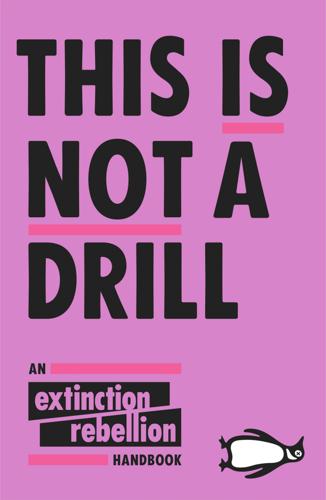
This Is Not a Drill: An Extinction Rebellion Handbook
by Extinction Rebellion · 12 Jun 2019 · 138pp · 40,525 words
is Now – Carne Ross Afterword – Rowan Williams What is Your Place in These Times? – Gail Bradbrook The Social Contract – Adam Wagner About the Author Extinction Rebellion are a new force taking realistic action at a critical time for our species and for life on this planet. We are prepared to put
…
accept that a system based on ecocide and genocide qualifies to be a ‘civilization’. There are better ways to live, to produce and to consume. Extinction Rebellion begins with the liberation of our minds from colonizing categories. We are diverse but equal – not ‘superior’ or ‘inferior’. The extermination of life in
…
cannot be justified by declaring other species and other cultures ‘inferior creatures of God’. The Earth is for all beings, today and tomorrow. I call Extinction Rebellion ‘Satyagraha for Life’. Satyagraha, for Gandhi, was non-cooperation based on the force of truth. Today’s struggle for truth is that extinction and
…
life and freedom. This is the call of Earth Democracy. This is our highest duty as Earth citizens. INTRODUCTION: THE STORY SO FAR SAM KNIGHTS Extinction Rebellion This book is about a rebellion. A rebellion that is happening now. Although perhaps, by the time these words are published, the rebellion will
…
been fought for by thousands of scientists, academics and activists all across the world. It has been hard, and punishing, and sometimes very lonely. Extinction Rebellion began in a small English town. It began with fifteen people who had studied and researched the way to achieve radical social change. Together, these
…
2018, we declared ourselves to be in open rebellion against the UK government. Since then, in such a short space of time, hundreds of Extinction Rebellion groups have been established in countries across the globe. The movement is now active in every single continent except Antarctica. Hundreds of thousands of people
…
will not be solved by gradual reform and rotten compromise. This is a crisis that requires radical system change on a scale never seen before. Extinction Rebellion is a decentralized mass movement of concerned citizens. It is open to anyone who takes action in a non-violent way, actively mitigating for power
…
are being displaced now, the people who are dying now, the people who have been trying to warn us for years. We acknowledge that Extinction Rebellion is just one articulation of a feeling that is being felt all across the world. We see ourselves as one branch of a much wider
…
is under way due to conversion of their forests, wetlands and other wild landscapes into concrete cities, dam reservoirs and fields growing soya. I joined Extinction Rebellion to fight against the climate and ecological emergency we are now facing – an emergency that threatens the very conditions of all life on Earth.
…
also the struggle for racial, gender, sexual and economic equality. We are not alone. Actions are now happening all over the world. In Ghana, Extinction Rebellion activists recently held an event calling for action on the climate and ecological emergency in Africa. The event was staged in solidarity with those in
…
life. This is why this event is important,’ says the Ghanaian activist Mawuse Yao Agorkor. These voices cannot be ignored any longer. This year, Extinction Rebellion has injected a new sense of energy and urgency into the climate movement. Thousands of people have joined, participating in non-violent actions by blocking
…
bridges, blockading roads and shutting down government buildings. While media headlines have focused on our work in the United Kingdom, Extinction Rebellion has started an International Solidarity Network to support existing resistance in the majority world, working closely with activists in West Papua, Bangladesh, Mongolia and the
…
in Robert Peel’s founding principle: ‘The police are the community, and the community are the police.’ There’s something to be learned here. Extinction Rebellion has chosen a very particular stance vis-à-vis the police: to actively try to get arrested. The police will have to choose what stance
…
have talked of the collapse of civilizations and societies, or what food insecurity will mean for us, and for generations to come. In February 2019, Extinction Rebellion’s Roger Hallam put it bluntly: ‘War, mass mental breakdown, mass torture, mass rape.’ In all this, our relatively new societal values will be
…
person, I am terrified. This keeps me awake at night. It’s one of the reasons why I was at the launch event of Extinction Rebellion, was on the bridges in November and in the streets in April and why I will continue to encourage all people, especially my LGBTQ brothers
…
city. The images come from both sides of the Channel. There’s something uncanny about the emergence on the same day of these two movements, Extinction Rebellion and the Gilets Jaunes, the similarity of tactics, even the aesthetic coincidence of the fluorescent colours, the yellow vests in Paris and the yellow,
…
politics. In this sense, what went up in smoke in Paris was the fantasy of green neoliberalism. This is where the third demand of Extinction Rebellion comes in: a serious response to the climate emergency will require a radical democratic process, a transformation of our way of living in which we
…
threat – and this is where the movement that began in London in November 2018 might look again at its strange twin across the Channel. Clearly, Extinction Rebellion would not seek the edge of chaos which drew so much attention to the Gilets Jaunes. Yet if this is truly a rebellion, then –
…
tale. PART TWO ACT NOW POWER CONCEDES NOTHING WITHOUT A DEMAND IT NEVER DID AND IT NEVER WILL — Frederick Douglass 13/ COURTING ARREST JAY GRIFFITHS Extinction Rebellion I was locked-on at Oxford Circus in the brilliant sunshine of Easter Saturday. Arrest imminent. Lying there immobilized, my hand locked with a chain
…
and superglue, the moon shining over Westminster Abbey. Courting in the middle of a rebellion. David Attenborough’s climate-change programme was being screened by Extinction Rebellion, the ghostly scaffolding sheeting at the Palace of Westminster a backdrop used as a projection screen. An XR banner – ‘Beyond Politics’ – was flying in
…
nicer night. ‘Why do you want to be arrested?’ asked one of the police officers at Oxford Circus. This question is at the heart of Extinction Rebellion. I had never in my life been arrested, for all the usual reasons: a desire to be law-abiding; concern about acquiring a criminal
…
to ‘upstander’. Standing up for something infinitely bigger and more important than you. This is the self-sacrificial idea of arrest at the core of Extinction Rebellion’s strategy, and it gives you strength from within. Ancient values are overtly resurrected in this Easter rebellion in London: the values of chivalry and
…
not a victory march.’ He cupped his hands and sang it to me, and it made people cry. Yes, including me. At that time, Extinction Rebellion flags still held all across central London, from Waterloo Bridge to Marble Arch. A warm and unbroken hallelujah. They say that, in the cells, the
…
said another. One reached out and shook my hand. ‘God bless. And good luck.’ This is sweet rebellion. 14/ THE CIVIL RESISTANCE MODEL ROGER HALLAM Extinction Rebellion Extinction Rebellion did not come out of nowhere. Unlike many of the spontaneous social-media-fuelled rebellions and uprisings in recent years
…
than ever before. This time, we are literally fighting for our lives. 16/ BUILDING AN ACTION TIANA JACOUT, ROBIN BOARDMAN AND LIAM GEARY BAULCH Extinction Rebellion In Extinction Rebellion, we use non-violent direct action to raise awareness of the climate crisis, drawing on a long and noble history of peaceful protest and direct
…
. There are roles within our movement for people who don’t, for whatever reason, want to take these risks. It must be stressed that Extinction Rebellion actions are focused on creating disruption through committing civil disobedience. Peaceful lawbreaking and acts of rebellion shift the narrative to one of emergency, which changes
…
to be clear – hospitals, fire stations – and plan accordingly. We are here to disrupt, not to cause harm. The five central London bridges that Extinction Rebellion blocked in November 2018 were chosen as they are routinely shut down for the London Marathon, so the city has a pre-existing plan for
…
stages: an open-sided van on the bridge hosting concerts and performers, and, of course, the Big Pink Boat. Through weeks of planning, our Extinction Rebellion boat managed to make a surprise appearance in the middle of Oxford Circus as the centrepiece of a ‘Tell the Truth’ stage. This theme was
…
DIY as a way of making people earn shit through action … 20/ ONE BY ONE: A MEDIA STRATEGY RONAN MCNERN Media and Messaging coordinator, Extinction Rebellion I want to start by considering how an idea becomes a reality, then progresses to a household name. I’ve worked in PR for many
…
interest follows, a trickle at first, then a deluge. All this is true of our strategy for communicating the climate and ecological emergency. The story Extinction Rebellion has to tell is one of universal importance. Its audience is, ultimately, as big as it gets: namely, everyone. Yet XR’s strategy – initially,
…
3.5 per cent of the population is needed. It’s that 3.5 per cent that we want to engage. The first action that Extinction Rebellion did in the UK in October 2018, which emphasized XR’s unique approach and distinguished it from previous movements, was to occupy Greenpeace’s
…
a key role in how we in the Media and Messaging team communicate among ourselves. The addition of a WhatsApp group for journalists interested in Extinction Rebellion news changed the relationship we had with journalists. One by one this became a very powerful means of communicating with media during this International
…
Rebellion, with news stories breaking within moments of being posted to the group. Just as with my family, Extinction Rebellion has been able to be more present and human to journalists, stepping away from the formality of some of the traditional means of communication. We
…
has broken through to mainstream awareness, at least in the UK. But this is only the start. The challenge before us is to take the Extinction Rebellion story to every facet of life: across international and national media and the myriad to vertical media sectors (consumer, lifestyle, health, education, and so
…
2018 IPCC report, saying we have twelve years to avert climate catastrophe, talking of imminent threats. Our children’s future is in jeopardy. When Extinction Rebellion came along, I had this feeling of relief, realizing that this was the last course of action left. I wasn’t sure whether non-violent
…
a TV and saw myself in a news montage. It was amazing, watching the media debate change as the week went on. One of Extinction Rebellion’s most important functions is to help us with overwhelming feelings of despair at our situation. It doesn’t mean everything will work out, but
…
helps: we’re doing the best we can. Even prison came to feel meaningful – a life-changing experience. 22/ POLICE, ARREST AND SUPPORT LEGAL TEAM Extinction Rebellion Extinction Rebellion is clear that the police continue to be structurally racist, unjust and violent, particularly towards oppressed groups. We are totally opposed to such discriminatory practices
…
home, or a place to stay, and to track and follow any cases that are taken to court. 23/ REINFORCEMENTS AND MIDNIGHT SNACKS WILLIAM SKEAPING Extinction Rebellion It’s late, very late, and you’ve spent the entire day outside in Parliament Square. Earlier, the sun was warm, but with darkness
…
four officers carting her off as others try to dismantle a folding gazebo where the biscuit tin was kept. A guy sporting ‘Act Now’ and Extinction Rebellion badges is on the phone, staring at four shrinking roadblocks, wondering if they can all be maintained. You know there’s a climate and ecological
…
main road holding what looked from a distance like a tartan-wrapped rugby ball under his arm. It wasn’t clear if he was with Extinction Rebellion or why he was walking towards us until the sound of bagpipes started. A huge cheer went up: it was as though the sound
…
they should have a say in shaping them. In fact, everyone deserves more of a say over the future of our countries and our world. Extinction Rebellion are right to call for a citizens’ assembly on the climate crisis – bringing together representative groups of people to hear objective evidence and make
…
and radical change. It’s time for politicians to stop arguing among themselves, stop blaming their opponents and unite behind the need for transformative change. Extinction Rebellion thinks beyond politics. The voices of two politicians are included here as they represent important forward-thinking sentiments that we hope will resonate and develop
…
short-term, diminishing security and prosperity. The choice facing us couldn’t be clearer. It is time to break with neoliberalism, not break the planet. Extinction Rebellion thinks beyond politics. The voices of two politicians are included here as they represent important forward-thinking sentiments that we hope will resonate and develop
…
the fostering of better habits and (I’d want to add) the creation of strategies to salvage relationships, self-respect, even the possibility of joy. Extinction Rebellion recognizes that the climate crisis is a symptom of far wider kinds of malaise and corruption in the human imagination. That’s why the creation
…
miserably evident in the ego-boosting dramas of the Brexit debates and the resurgence of surly, self-protective localism across the world’s political landscape, Extinction Rebellion urges on us the revolution of coming to ourselves, coming to truthfulness, healing the broken connection with what we are. It might just work.
…
life – not success, but life. WHAT IS YOUR PLACE IN THESE TIMES? GAIL BRADBROOK Standing above the crowds in Oxford Circus, in the pink Extinction Rebellion boat, Daiara Tukano spoke of existence as resistance. Coming from the Tukano indigenous nation of Brazil’s Upper Rio Negro, a community enduring severe human
…
, it is because you are here to do a job. So what is your place in these times? Have you felt the call to join Extinction Rebellion? Which of your gifts are needed right now? Maybe you feel ill equipped. Bring your uncertainty, together with a willingness to learn. You may
…
Penguin Books is part of the Penguin Random House group of companies whose addresses can be found at global.penguinrandomhouse.com First published 2019 Copyright © Extinction Rebellion, 2019 The moral right of the authors has been asserted Edited by Clare Farrell, Alison Green, Sam Knights and William Skeaping ISBN: 978-0
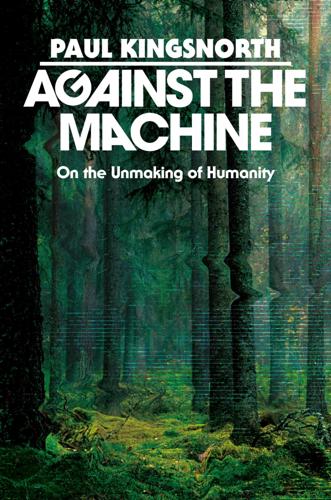
Against the Machine: On the Unmaking of Humanity
by Paul Kingsnorth · 23 Sep 2025 · 388pp · 110,920 words
leader you don’t like. Move on to explore how much of this ‘rising authoritarianism’ is reflected in environmentalism, as evidenced by Just Stop Oil, Extinction Rebellion, the Green New Deal, the Great Reset, Bill Gates, Net Zero, Greta Thunberg or [insert name of bête noire here]. After this, list the historical
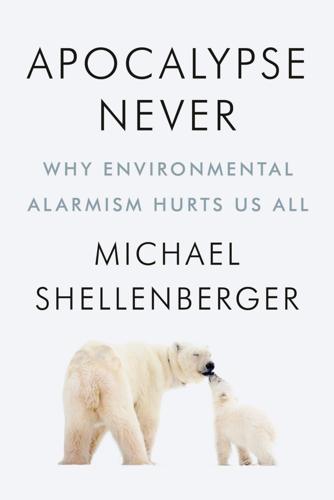
Apocalypse Never: Why Environmental Alarmism Hurts Us All
by Michael Shellenberger · 28 Jun 2020
the Author Copyright About the Publisher Introduction In early October 2019, a television journalist from Sky News in Britain interviewed two climate activists. Their group, Extinction Rebellion, was about to begin two weeks of civil disobedience in London and other cities around the world to protest lack of action on climate change
…
. A scientist and a professor had created Extinction Rebellion in spring 2018 and recruited environmentalists from across Britain to get arrested for the cause. In the fall of that year, more than six thousand
…
claims on national television. “Billions of people are going to die.” “Life on Earth is dying.” And, “Governments aren’t addressing it.”2 By 2019, Extinction Rebellion had attracted the support of leading celebrities, including actors Benedict Cumberbatch and Stephen Fry, pop stars Ellie Goulding and Thom Yorke, 2019 Oscar-winning actress
…
Olivia Colman, Live Aid producer Bob Geldof, and Spice Girl Mel B. While Extinction Rebellion may not have been representative of all environmentalists, nearly half of Britons surveyed told pollsters they supported the group.3 And the British were not
…
the world found that 48 percent believed climate change would make humanity extinct.4 But by the fall of that same year, public support for Extinction Rebellion, including the sympathy of journalists, rapidly declined after the organization shut down streets and public transit throughout London. “What about families?” the Sky News
…
host asked the Extinction Rebellion spokespersons. “I remember back in July, someone saying that he missed being at his father’s bedside when he died in Bristol.”5 “And that
…
right now as we look at the future of our children, because it’s very, very grave.” Three days before the Sky News interview, Extinction Rebellion had driven an old fire truck in front of the British Treasury in London and unfurled a banner that read Stop Funding Climate Death. The
…
by electricity, which in Britain emits less than half the carbon now than it did in 2000.7 In the video, we see two Extinction Rebellion protesters climb on top of one of the train cars and unfurl a banner with white letters against a black background that read Business as
…
make.” Video from the Tube protest showed hundreds of angry people on the platform, who had emptied out of the train cars, yelling at the Extinction Rebellion activists who stood defiantly on top of the train. The commuters shouted at the two young men to get down. “I’m just trying
…
a reporter who was at the scene.10 A This Morning host said that 95 percent of people surveyed now said Extinction Rebellion was a hindrance to its cause. What was Extinction Rebellion thinking?11 In the video of the Tube protest, we see a commuter try to climb on top of the
…
Angry commuters at the Tube station descended into violence. In another video of the incident, we see a man knocking a man filming video of Extinction Rebellion action onto the floor and kicking him.12 Later, outside the Tube station, a “man in a red jacket was punching the face of a
…
“who was calling on him to stop his violence.” Toward the end of This Morning, the cohosts did something odd: they appeared to agree with Extinction Rebellion’s Sarah Lunnon about climate change. “We are all hugely concerned and want to support you,” said one of them. “Without question there is an
…
juice? Even if climate change were “only” going to kill millions of people, rather than billions, then the only reasonable conclusion to draw from Extinction Rebellion’s tactics is that they weren’t radical enough. To be fair, the ITV and Sky News hosts didn’t agree with Lunnon’s extreme
…
of a crisis is it, exactly? At that moment, in the wake of a protest that could easily have resulted in the deaths of an Extinction Rebellion activist and videographer, it struck me that nobody was offering a particularly good answer to those questions. I wrote Apocalypse Never because the conversation about
…
climate change and the environment has, in the last few years, spiraled out of control, not unlike Extinction Rebellion’s beet juice firehose. I have been an environmental activist for thirty years and researched and written on environmental issues, including climate change, for twenty
…
that civilization would collapse, if temperatures rose above 1.5 degrees Celsius.24 Scientists had a similarly negative reaction to the extreme claims made by Extinction Rebellion. Stanford University atmospheric scientist Ken Caldeira, one of the first scientists to raise the alarm about ocean acidification, stressed that “while many species are
…
to be governing behind the scenes.55 4. Billions Won’t Die On BBC Two’s Newsnight, in October 2019, the journalist Emma Barnett asked Extinction Rebellion’s sympathetic and empathic spokesperson, Sarah Lunnon, how her organization could justify disrupting life in London the way it had. “To be the cause of
…
on on a path to—” “—but not six billion people. There’s no science that calculates it to that level, is there?” asked Barnett. Extinction Rebellion’s Lunnon didn’t let him answer. “There are a number of scientists who’ve said if we get to four degrees of warming, which
…
science that says that, do you understand why some people who are sympathetic to your cause also feel like you have fear-mongered? For instance, [Extinction Rebellion co-founder] Roger Hallam has also said our kids will be dead in ten to fifteen years.” “We are losing the weather we know!” Lunnon
…
no older than ten years old.104 Some journalists pushed back against the group’s alarmism. The BBC’s Andrew Neil interviewed a visibly uncomfortable Extinction Rebellion spokesperson in her mid-thirties named Zion Lights.105 “One of your founders, Roger Hallam, said in April, ‘Our children are going to die
…
m not saying that because I’m alarming children,” replies Lights. “They’re learning about the consequences.” Happily, not all of Britain’s schoolchildren trusted Extinction Rebellion to honestly and accurately explain the consequences. “I did research and found there was a lot of misinformation on the denial side of things and
…
to YouTube and joined Twitter to promote them. “As important as your cause is,” said Jeffrey in one of the videos, an open letter to Extinction Rebellion, “your persistent exaggeration of the facts has the potential to do more harm than good to the scientific credibility of your cause as well as
…
nations out of poverty in the past. 5 Sweatshops Save the Planet 1. War on Fashion In fall 2019, during London Fashion Week, hundreds of Extinction Rebellion activists protested the industry’s impact on the climate. Some covered themselves in fake blood and lay down in the street. In front of Victoria
…
wearing blood-red dresses and white face paint, protested in front of H&M, a retailer that sells inexpensive “fast-fashion.”4 A post on Extinction Rebellion’s Facebook page read, “The industry still adheres to an archaic system of seasonal fashions, adding pressure to relentlessly create new fashion from new materials
…
.”5 On its website, Extinction Rebellion wrote, “Globally we produce up to one hundred billion pieces of clothing a year, taking a terrible toll on the planet and people who make
…
really the only way of having any impact at this point, which is a difficult message for many people to take on board,” said an Extinction Rebellion activist. “As a communication tool, fashion is so influential,” said another activist. “We all have to put clothes on and that has power.”7
…
attract media attention. The truth about clothing and other consumer items made in factories in poor and developing countries is actually the opposite of what Extinction Rebellion and Greenpeace claim. Rather than being the main culprit in the destruction of forests, factories have been, and remain, an engine for saving them.
…
.77 7. The Manufacturing Ladder The real risk to forests comes not from the expansion of energy-intensive factories in poor nations, as Greenpeace and Extinction Rebellion claim, but rather from the declining need for them. On one hand, Africa has made real progress during the last half century. Agricultural productivity
…
kingdom of heaven, today’s apocalyptic environmentalism offers fear, anger, and the narrow prospects of avoiding extinction. I happened to be in London to witness Extinction Rebellion’s forcible closure of central London, which was about a week before the Tube protest. I stayed in a hotel a few blocks from Trafalgar
…
Square, where hundreds of activists camped out for two weeks. The mostly white, educated, upper-middle-class Extinction Rebellion activists were strikingly similar in socioeconomic status, ideology, and behavior to the Earth First! activists I’d met while working to save the last unprotected
…
black mourning veils; and there were dead-silent activists wearing blood-red gowns who had painted their faces ghost-white save for their red lips. Extinction Rebellion’s heavy focus on death bothered me and so, after I returned to the United States, I reached out to my friend Richard Rhodes, the
…
I had talked about death earlier in the year, and so I was curious to hear his reaction to the ubiquity of death symbolism in Extinction Rebellion’s protests. “You know Becker’s book The Denial of Death?” Rhodes asked. “It won the Pulitzer Prize.” I said I did. According to
…
the most opposed to the technologies capable of addressing them, from fertilizer and flood control to natural gas and nuclear power. After two weeks of Extinction Rebellion parading coffins through the street, blocking traffic, and stopping Tube trains, many Britons had had enough. “Let us no longer beat around the bush
…
ecological breakdown and for humanity is against the rules then the rules must be broken,” she tweeted in October.73 Two days later, two male Extinction Rebellion protesters stood on top of a train, to block it from moving forward, in the London Tube. Angry commuters kicked and beat one of
…
In other words, they were in a panic. When I complained to Lunnon by phone about the Tube incident, her response was that, thanks to Extinction Rebellion, climate change had been in the news extensively in the run-up to the British elections. She offered the same justification for the Tube protest
…
more people are harmed by it, including the alarmists themselves. Lauren Jeffrey, the seventeen-year-old in Britain, noticed heightened anxiety among her peers after Extinction Rebellion’s protests. “In October I was hearing people my age saying things I found quite disturbing,” says Jeffrey. “ ‘It’s too late to do
…
those anxieties. Confronting them directly as objects of death, and even as symbols of the apocalypse, may help. When Dick Rhodes and I talked about Extinction Rebellion’s protests in London, it wasn’t the first time we had talked about death. A few months earlier, over lunch, I told him I
…
, October 6, 2019, https://www.youtube.com/watch?v=ArO_-xH5Vm8. 3. Cameron Brick and Ben Kenward, “Analysis of Public Opinion in Response to the Extinction Rebellion Actions in London,” Ben Kenward (website), April 22, 2019, http://www.benkenward.com/XRSurvey/AnalysisOfPublicOpinionInResponseToTheExtinctionRebellionActionsInLondonV2.pdf. 4. “International Poll: Most Expect to Feel Impact
…
https://www.ft.com. 56. Myles Allen and Sarah Lunnon, interviewed by Emma Barrett, Newsnight, BBC, aired October 10, 2019, on BBC. 57. Sarah Lunnon (Extinction Rebellion spokesperson) in discussion with the author, November 26, 2019. 58. Gaia Vince, “The Heat Is On over the Climate Crisis. Only Radical Measures Will Work
…
,” The Guardian, May 18, 2019, https://www.theguardian.com. 59. Sarah Lunnon (Extinction Rebellion spokesperson) in discussion with the author, November 26, 2019. 60. Johan Rockström (director of the Potsdam Institute for Climate Impact Research) in discussion with the
…
October 10, 2019, on BBC, https://www.youtube.com/watch?time_continue=7&v=pO1TTcETyuU&feature=emb_logo. 106. Lauren Jeffrey, “An Open Letter to Extinction Rebellion,” YouTube (video), October 21, 2019, https://www.youtube.com/watch?v=iyYPLkWV3l0. 107. Peter James Spielmann, “UN Predicts Disaster if Global Warming Not Checked,”
…
Global Fashion Agenda, Boston Consulting Group and Sustainable Apparel Coalition, 2019, accessed October 26, 2019, https://www.globalfashionagenda.com/pulse-2019-update. 7. Elizabeth Paton, “Extinction Rebellion Takes Aim at Fashion.” 8. Sarah Anne Hughes, “Greenpeace Protests Barbie at Mattel Headquarters,” Washington Post, June 8, 2011, https://www.washingtonpost.com. 9. Ibid
…
.org/ucrf-on-2019-copenhagen-fashion-summit. See also, “The changes we are seeing from some brands remain extremely superficial,” said one XR activist. Paton, “Extinction Rebellion Takes Aim at Fashion.” 14. Syarifah Nur Aida (journalist, Ipeh) in discussion with the author, June 8, 2015. 15. Suparti (factory worker) in discussion
…
Human Beings (Boston: Polity Press, 2013), 19. 62. Ernest Becker, The Denial of Death (New York: Free Press, 1973). 63. Ibid., 5. 64. Zion Lights (Extinction Rebellion spokesperson), email correspondence with the author, January 4, 2020. Leslie Hook, “Greta Thunberg: ‘All My Life I’ve Been the Invisible Girl,’ ” Financial Times, February
…
22, 2019, https://www.ft.com. Sarah Lunnon (Extinction Rebellion spokesperson) in discussion with the author, November 26, 2019. 65. Ines Testoni, Tommaso Gheller, Maddalena Rodelli et al., “Representations of Death Among Italian Vegetarians: Ethnographic
…
Environment (Cambridge, UK: Cambridge University Press, 2008), 2. Epilogue 1. Christine Figgener (sea turtle biologist) in conversation with the author, November 6, 2019. Zion Lights (Extinction Rebellion spokesperson) in discussion with the author, December 5, 2019. 2. David Wallace-Wells, “We’re Getting a Clearer Picture of the Climate Future—and It
…
Jerry Brown protected his family’s oil monopoly through state air pollution regulations, while also working to block and close nuclear power plants. (Associated Press) Extinction Rebellion activists (also called the Red Rebel Brigade), claiming climate change threatened human extinction, halted traffic in London in the spring and fall of 2019. (Guy
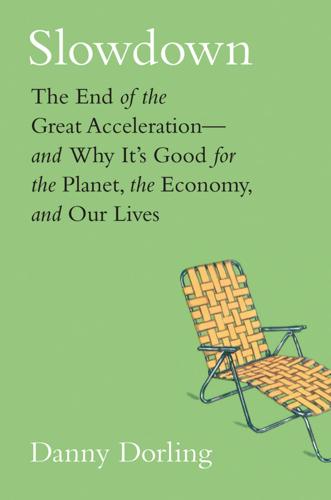
Slowdown: The End of the Great Acceleration―and Why It’s Good for the Planet, the Economy, and Our Lives
by Danny Dorling and Kirsten McClure · 18 May 2020 · 459pp · 138,689 words
article was published five weeks after more than one thousand young people had been arrested just fifty miles away in London as part of the Extinction Rebellion protest during Easter 2019. We do not know how long the Future of Humanity Institute will survive, but the fact that even it omits to
…
amazing at the start of the twenty-first century was, in hindsight, simply hype. CHAPTER 5. Climate Epigraph: Jacob Jarvis, “Greta Thunberg Speech: Activist Tells Extinction Rebellion London Protesters ‘We Will Make People in Power Act on Climate Change,’” London Evening Standard, 21 April 2019, https://www.standard.co.uk/news/london
…
/greta-thunberg-tells-extinction-rebellion-protesters-we-will-make-people-in-power-act-on-climate-a4122926.html. 1. Jonathan Watts, “A Teen Started a Global Climate Protest. What Are You
…
. See also China; India; Japan European Union, 279–80, 341n5, 362n45 extinction, 12–15, 13, 298–99, 300, 301–2, 304–5. See also biodiversity Extinction Rebellion protest, 301–2 Fahrenheit, Gabriel, 123 family-planning clinics, 311–12 famine, 155, 162,166, 168, 215 Faster (Gleick), 211 favorable seasons, 1, 38–39
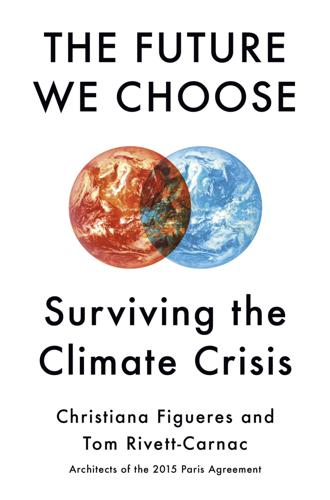
The Future We Choose: Surviving the Climate Crisis
by Christiana Figueres and Tom Rivett-Carnac · 25 Feb 2020 · 197pp · 49,296 words
. Their policy platforms must strictly be informed by science. It’s time to participate in nonviolent political movements wherever possible. In April 2019, the group Extinction Rebellion, building on years of work by various nonprofit organizations, some politicians, and other activists, seized the moment and began a series of global protests, the
…
two months of that initial protest, the UK declared a climate emergency, adopted a target of net-zero emissions by 2050 (less ambitious than what Extinction Rebellion was calling for, but still a big step), and established a citizens’ assembly to look at how it could be achieved.100 Civil resistance by
…
, July 25, 2019, https://www.forbes.com/sites/andystone/2019/07/25/climate-change-a-real-force-in-the-2020-campaign/. 100. For more on Extinction Rebellion, see their website, https://rebellion.earth/; Brian Doherty, Joost de Moor, and Graeme Hayes, “The ‘New’ Climate Politics of
…
Extinction Rebellion?” openDemocracy, November 27, 2018, https://www.opendemocracy.net/en/new-climate-politics-of-extinction-rebellion/. 101. For more resources on civil disobedience, see “Civil Disobedience,” ScienceDirect, https://www.sciencedirect.com/topics/computer-science/civil
…
. Berners-Lee, Mike. There Is No Planet B: A Handbook for the Make or Break Years. Cambridge, UK: Cambridge University Press, 2019. Extinction Rebellion. This Is Not a Drill: An Extinction Rebellion Handbook. London: Penguin, 2019. Foer, Jonathan Safran. We Are the Weather: Saving the Planet Begins at Breakfast. New York: Farrar, Straus and
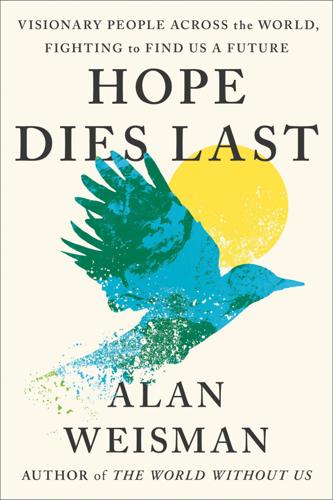
Hope Dies Last: Visionary People Across the World, Fighting to Find Us a Future
by Alan Weisman · 21 Apr 2025 · 599pp · 149,014 words
we can stop ALL fossil fuel infrastructure.” He signed it: “With profound, profound hope.” * * * — In Europe, desperate for a distracted world’s attention, chanting young Extinction Rebellion members glue their feet to tennis stadiums during Grand Slam events; others glue their hands to museum walls, or symbolically deface priceless paintings by spattering
…
Is Determined to Get in Your Face.” Mother Jones, February 13, 2024. https://www.motherjones.com/politics/2024/02/climate-defiance-fossil-fuel-protests-radical-extinction-rebellion. Gotal, H., M. W. Binderbauer, T. Tajima1, S. Putvinski, et al. “Formation of Hot, Stable, Long-Lived Field-Reversed Configuration Plasmas on the C-2W
…
, 26, 28, 391–92 European Convention on Human Rights, 155 European Union, 154, 156n, 231, 234, 276n Evergreen Point Floating Bridge, 321 Explorers Club, 325 Extinction Rebellion, 385 extinctions and Anthropene epoch, 64 and climate activism, 388–89 dinosaurs, 32, 42 and habitat protection efforts, 64, 67–68, 70 and industrial-scale
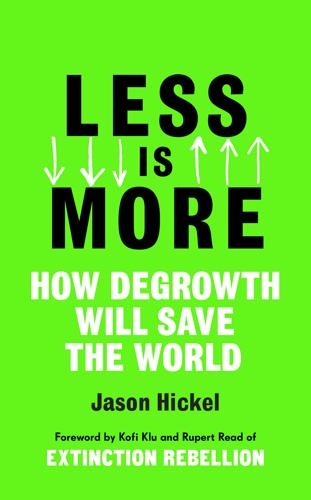
Less Is More: How Degrowth Will Save the World
by Jason Hickel · 12 Aug 2020 · 286pp · 87,168 words
on it? –Wendell Berry Preface A Vision Informed by Our Shared Vulnerablity, and by Our Solidarity By Kofi Mawuli Klu and Rupert Read of XR. Extinction Rebellion [XR] is sometimes criticised for having demands that are (too) hard to achieve. But it’s important to be clear about what XR is not
…
2030.13 The IPCC report had a galvanising effect, spurring citizens to action. Students staged climate strikes across Europe and North America. In London, the Extinction Rebellion movement blockaded five bridges across the River Thames, demanding that the UK government act immediately to achieve rapid emissions reductions. Opinion polls showed that a
…
, as with every struggle for social and ecological justice in history. And to some extent it is already emerging: from the school climate strikes to Extinction Rebellion, from La Via Campesina to Standing Rock; people are not only yearning for a better world, they are mobilising to bring it into being. I
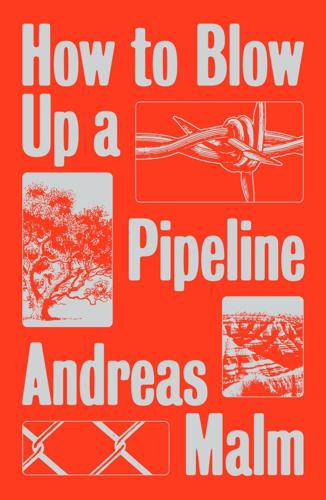
How to Blow Up a Pipeline
by Andreas Malm · 4 Jan 2021 · 156pp · 49,653 words
similarly grand plans for 2020, has had to call off its assemblies; the two-week-long camp in the centre of the city planned by Extinction Rebellion has been cancelled. Before COVID-19, the climate movement was soaring to ever-greater heights of mass participation, but the fuel of every social movement
…
, when one and a half million struck and marched in what might have been the largest coordinated youth protest in history. A few weeks later, Extinction Rebellion, or XR, another offspring of the hot summer of 2018, shut down much of central London as thousands of activists seized squares and bridges and
…
boat’. In the handbook, we learn that Rebels should seek to ‘actively try to get arrested’ and that this desire is ‘at the heart of Extinction Rebellion’. Well this appeals to some people. As pointed out in an open letter to XR after the London ‘spring uprising’ in 2019, written by the
…
temporality may swiftly move the benchmark of moderation, as it did during the civil rights era: Martin Luther King appeared radical in the late 1950s, Extinction Rebellion in 2019. With the emergence of a flank, positions shift. That is when progress can be made: when representatives of XR sit down with the
…
high characters – ‘they were a grandfather, an ex-Buddhist teacher, a vicar and a former GP among others’ – and defended the action as planned ‘within Extinction Rebellion’s principles and values, centred around non-violence and compassion’. One of the cofounders went on the BBC to bless the action as ‘peaceful’ and
…
knowledge that it is happening, that too much damage has already been done already – as expressed in the very names of the groups: 350.org, Extinction Rebellion, Ende Gelände – and that no efforts should now be spared in preventing even more of it. The movement knows that it faces a giant salvaging
…
resistance model’ … Roger Hallam, ‘The Civil Resistance Model’, in Clare Farrell, Alison Green, Sam Knights and William Skeaping (eds.), This Is Not a Drill: An Extinction Rebellion Handbook (London: Penguin, 2019), pp. 100–101. Cf. e.g. Roger Hallam, ‘Now We Know: Conventional Campaigning Won’t Prevent Our Extinction’, Guardian, 1 May
…
Farrell et al., This Is Not, p. 96; Ronan, ‘12 Extinction Rebellion Activists Willingly Arrested in Semi-Nude Protest to Highlight Climate Emergency during Brexit Debate in House of Commons’, Extinction Rebellion, rebellion.earth, 1 April 2019; BBC Radio 4: Beyond Today, ‘Are Extinction Rebellion the New Suffragettes?’, bbc.co.uk, 12 April 2019; Natalie Gil
…
, ‘Why We Joined Extinction Rebellion AKA the ‘New Suffragettes’, Refinery 29, refinery29.com, 15 April 2019. p
…
, 83, 155; McKibben, ‘Foreword’, pp. vii–viii; McKibben, Falter, p. 220; Vandana Shiva, ‘Foreword’, in Farrell et al., This Is Not, p. 7; Economist, ‘Could Extinction Rebellion Be the Next Occupy Movement?’, economist.com, 17 April 2019. p. 38. Not to forget the US civil rights movement … For this and the other
…
XR … The Wretched of the Earth, Argentina Solidarity Campaign, Black Lives Matter UK et al., ‘An Open Letter to Extinction Rebellion’, Red Pepper, redpepper.org.uk, 3 May 2019. Cf. Damien Gayle, ‘Does Extinction Rebellion Have a Race Problem?’, Guardian, 4 October 2019. p. 116. Taken from the reading of movements … See e.g
…
States Turn Anti-Pipeline Activism into a Crime’, Guardian, 8 July 2019. p. 125. the official statement exonerated the kick-to-thehead … Extinction Rebellion, ‘Statement on Today’s Tube Action’, Extinction Rebellion, rebellion.earth, 17 October 2019. p. 126. as one Guardian columnist quipped … Catherine Bennett, ‘The Extinction Rebels Have a Noble Cause. What
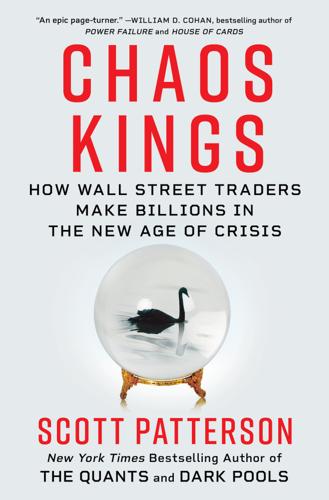
Chaos Kings: How Wall Street Traders Make Billions in the New Age of Crisis
by Scott Patterson · 5 Jun 2023 · 289pp · 95,046 words
accurate. CHAPTER 16 THIS CIVILIZATION IS FINISHED Rupert Read—dapper, trim, sandy-haired Green Party politician, Oxford-educated philosopher, spokesman for the activist environmental group Extinction Rebellion—breathed in the crisp Alpine air as he stepped off a train in Davos Platz. Here he was in the very belly of the beast
…
just a few billionaires to dedicate a nontrivial portion of their wealth toward the catastrophe of global warming, that could help accomplish what a dozen Extinction Rebellion protests could never do (he’d grown skeptical that the protest group had much of a future unless it received a game-changing infusion of
…
the UK in previous years. Read and the senior Thunberg talked for hours about the effectiveness of nonviolent direct action, the protest strategy exploited by Extinction Rebellion throughout London in 2018 and 2019 that had garnered international attention (and from some, condemnation). Read left Davos disappointed, though hardly surprised. The billionaires talked
…
group of activists had been in discussions about launching a new radical environmental group focused on global warming and species extinction. They would call it Extinction Rebellion, XR for short. It would use nonviolent direct-action techniques pioneered by Gandhi and the U.S. civil rights movement to raise awareness of the
…
it down the steps. Read and his activist cohort that day were part of a group called Writers Rebel, formed to support the goals of Extinction Rebellion. It included prominent authors such as Zadie Smith (author of White Teeth, On Beauty, and other novels), Irvine Welsh (Train-spotting), Margaret Atwood (The Handmaid
…
, 240 Epidemic Type Aftershock Sequence Model, 288 Epstein, Jeffrey, 124 ETH Zurich, 97–98, 157, 179, 288 European Central Bank, 110 European Environment Agency, 189 Extinction Rebellion (XR), 183, 184, 185, 187, 188, 243–44 Exxon Mobil, 230, 233, 239, 251 Fabbri, Brain, 111 Fama, Eugene, 226, 228 Fannie Mae, 3, 79
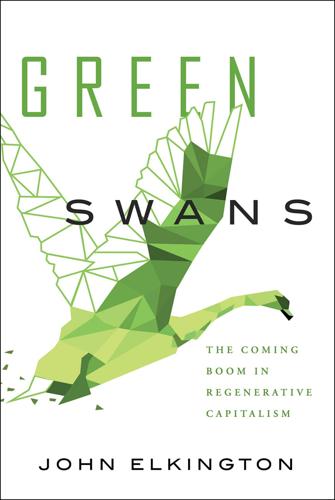
Green Swans: The Coming Boom in Regenerative Capitalism
by John Elkington · 6 Apr 2020 · 384pp · 93,754 words
. “I think I am growing up at last,” was, for me, the most memorable line in a filmed interview with an eighty-two-year-old Extinction Rebellion, or XR, protestor in Britain. Explaining why he had become one of the oldest XR activists during that group’s first round of protests in
…
trouble, as when I helped persuade twenty-plus CEOs and business leaders to sign a letter to The Times newspaper supporting the agenda advanced by Extinction Rebellion, known as XR.21 At the time, XR’s peaceful occupation of iconic sites like Trafalgar Square and Waterloo Bridge, just outside our London office
…
. By way of background, here is our letter in full: Sir, Contrary to belief, there is business support for the Extinction Rebellion (XR) agenda. The multi-million-pound costs that the Extinction Rebellion protests have imposed on business are regrettable, as is the inconvenience to Londoners. But future costs imposed on our economies by
…
many orders of magnitude greater. Hard pressure drives change, but even the most committed businesses will need time to respond. We welcome the news that Extinction Rebellion is evolving a new platform, “XR Business,” to engage business leaders, investors and advisers. To drive things forward, the idea is to convene a meeting
…
order. With Prince Charles in attendance, as a long-standing champion of CISL and sustainability, we debated the future—and the impact of groups like Extinction Rebellion and Fridays For Future on acceptable directions and speeds of change. On my table, participants even toyed with the idea of removing everyone aged over
…
traveled constantly for work since the early 1970s, earning a Gold Card for life from one airline. A sign of shame in these days of Extinction Rebellion and school climate strikes, but also an indication of a life spent carrying versions of the change agenda to places they might not otherwise have
…
-rebellion-x2tfq0rsj. To see the signatories for free, see here: https://jeremyleggett.net/2019/04/22/letter-to-the-times-by-business-leaders-supportive-of-extinction-rebellion-of-which-i-am-proud-to-be-one/. 22.For me, at least, other one-person Green Swans would include Rachel Carson (author of books
…
, 175–182 global grand challenges approach, 186–187 need for in technology, 170–171 overview, 25–26 shifting to, 34–37, 57, 200, 233–234 Extinction Rebellion (XR), 189, 225–226 Extra Time (Cavendish), 3 extra-financial break-even point, 152–153, 154f Exxon/ExxonMobil, 65, 66–67, 125, 129 F FAANG
…
World Wildlife Fund (WWF), 200–201, 224 worldviews, differing, 190–193 X X facility, Google, 35–36, 83, 240 XPRIZE Foundation, 35–36, 83 XR (Extinction Rebellion), 189, 225–226 Y YITU Technology, 168 Yu, Kongjian, 136 Z Zeitz, Jochen, 54 Zhexembayeva, Nadya, 198–199, 247 ZIF-8 molecule, 244 Zuckerberg, Mark
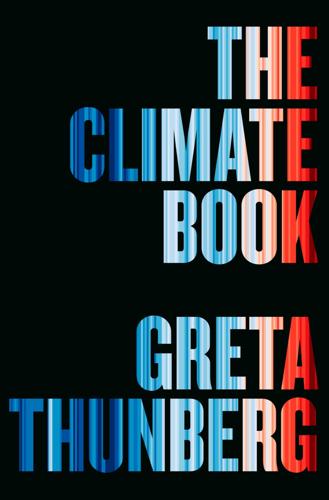
The Climate Book: The Facts and the Solutions
by Greta Thunberg · 14 Feb 2023 · 651pp · 162,060 words
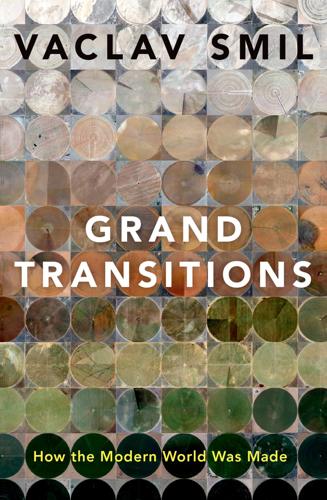
Grand Transitions: How the Modern World Was Made
by Vaclav Smil · 2 Mar 2021 · 1,324pp · 159,290 words
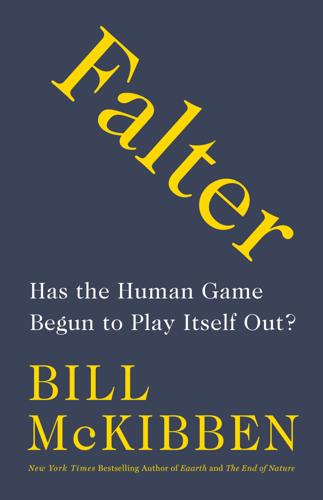
Falter: Has the Human Game Begun to Play Itself Out?
by Bill McKibben · 15 Apr 2019

Carbon: The Book of Life
by Paul Hawken · 17 Mar 2025 · 250pp · 63,703 words
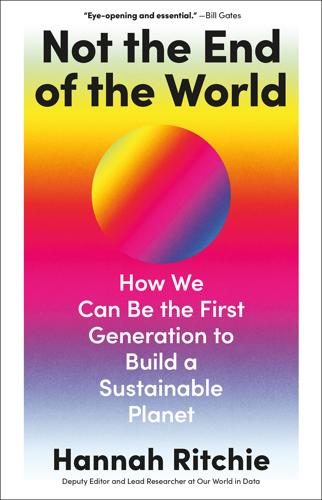
Not the End of the World
by Hannah Ritchie · 9 Jan 2024 · 335pp · 101,992 words
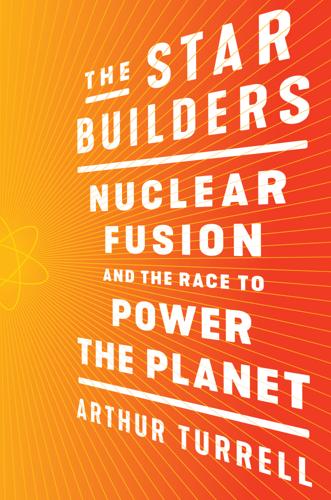
The Star Builders: Nuclear Fusion and the Race to Power the Planet
by Arthur Turrell · 2 Aug 2021 · 297pp · 84,447 words

Nomads: The Wanderers Who Shaped Our World
by Anthony Sattin · 25 May 2022 · 412pp · 121,164 words
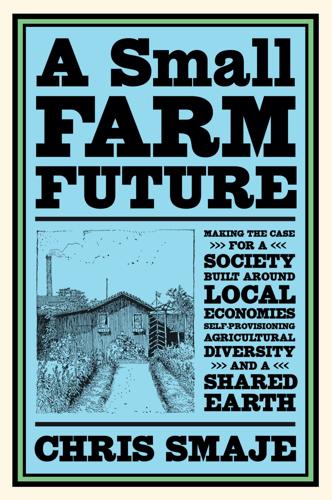
A Small Farm Future: Making the Case for a Society Built Around Local Economies, Self-Provisioning, Agricultural Diversity and a Shared Earth
by Chris Smaje · 14 Aug 2020 · 375pp · 105,586 words
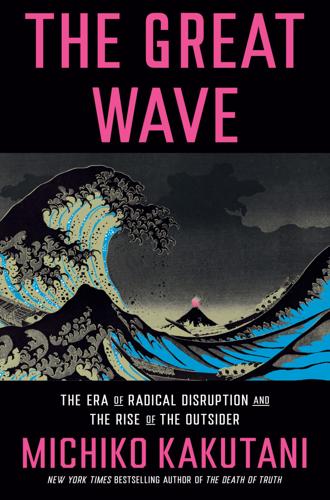
The Great Wave: The Era of Radical Disruption and the Rise of the Outsider
by Michiko Kakutani · 20 Feb 2024 · 262pp · 69,328 words
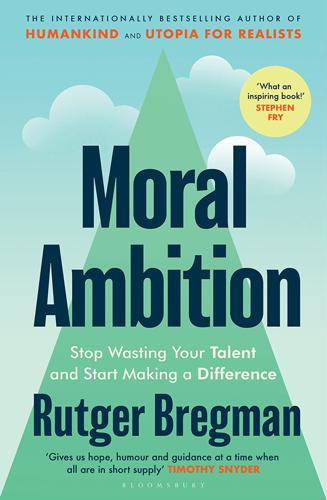
Moral Ambition: Stop Wasting Your Talent and Start Making a Difference
by Bregman, Rutger · 9 Mar 2025 · 181pp · 72,663 words
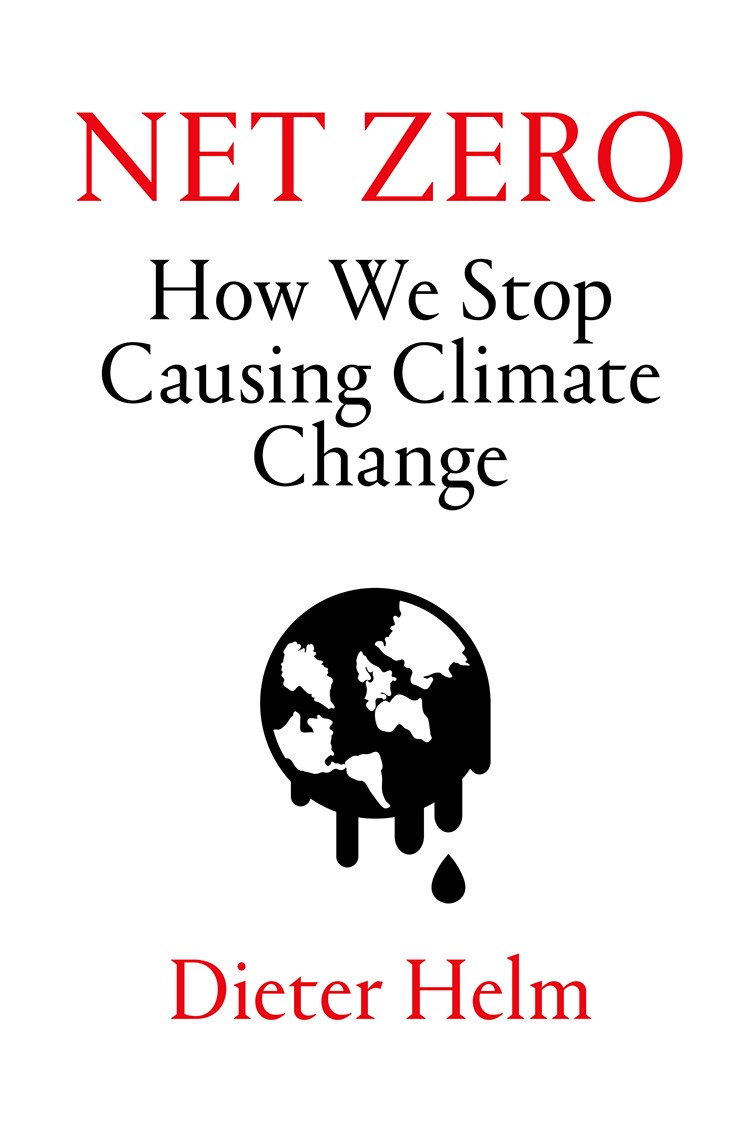
Net Zero: How We Stop Causing Climate Change
by Dieter Helm · 2 Sep 2020 · 304pp · 90,084 words
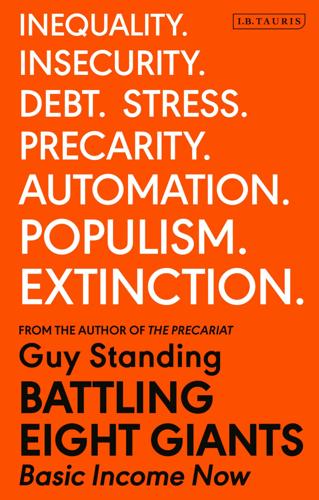
Battling Eight Giants: Basic Income Now
by Guy Standing · 19 Mar 2020
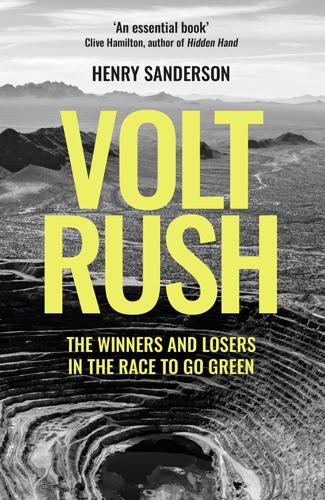
Volt Rush: The Winners and Losers in the Race to Go Green
by Henry Sanderson · 12 Sep 2022 · 292pp · 87,720 words
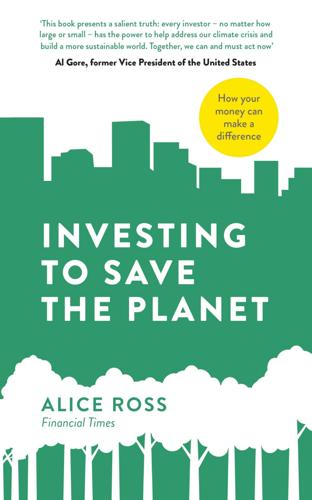
Investing to Save the Planet: How Your Money Can Make a Difference
by Alice Ross · 19 Nov 2020 · 197pp · 53,831 words
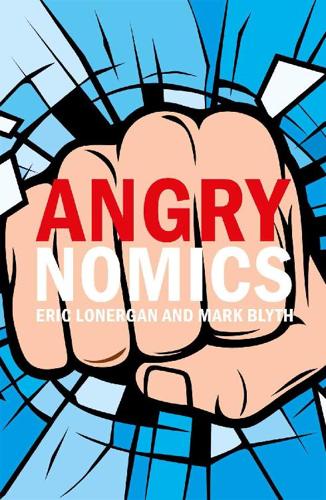
Angrynomics
by Eric Lonergan and Mark Blyth · 15 Jun 2020 · 194pp · 56,074 words
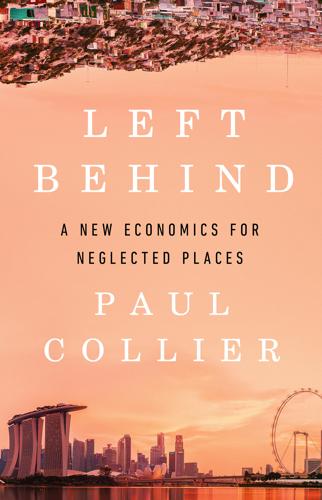
Left Behind
by Paul Collier · 6 Aug 2024 · 299pp · 92,766 words
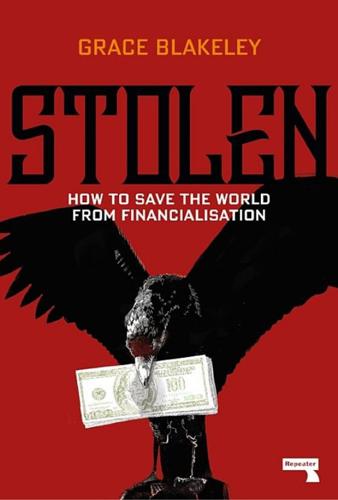
Stolen: How to Save the World From Financialisation
by Grace Blakeley · 9 Sep 2019 · 263pp · 80,594 words
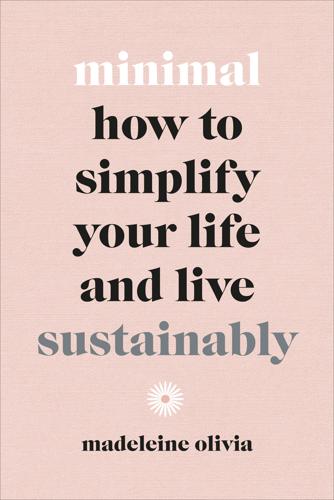
Minimal: How to Simplify Your Life and Live Sustainably
by Madeleine Olivia · 9 Jan 2020 · 306pp · 71,100 words
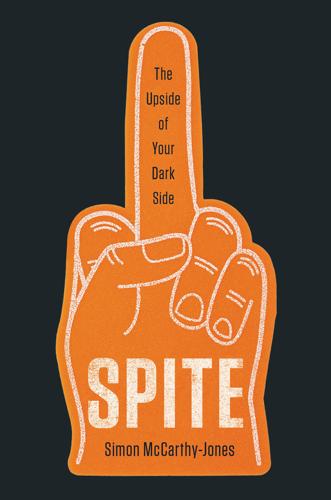
Spite: The Upside of Your Dark Side
by Simon McCarthy-Jones · 12 Apr 2021
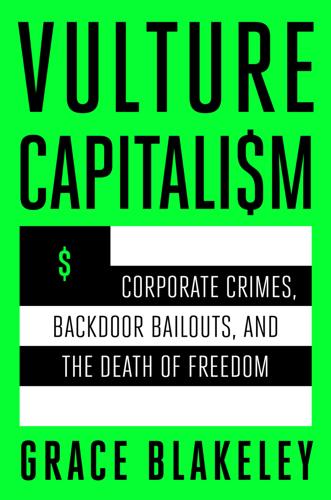
Vulture Capitalism: Corporate Crimes, Backdoor Bailouts, and the Death of Freedom
by Grace Blakeley · 11 Mar 2024 · 371pp · 137,268 words
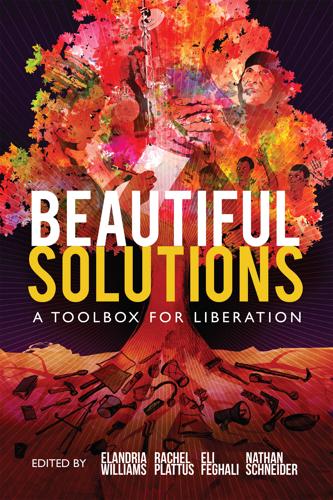
Beautiful Solutions: A Toolbox for Liberation
by Elandria Williams, Eli Feghali, Rachel Plattus and Nathan Schneider · 15 Dec 2024 · 346pp · 84,111 words
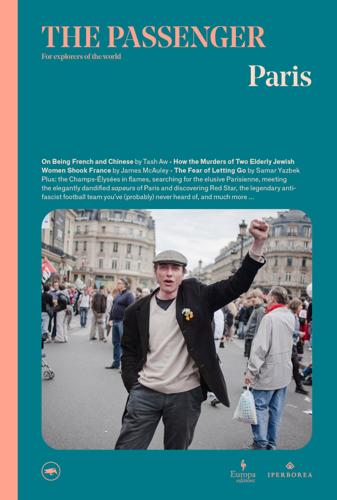
The Passenger: Paris
by AA.VV. · 26 Jun 2021 · 199pp · 62,204 words
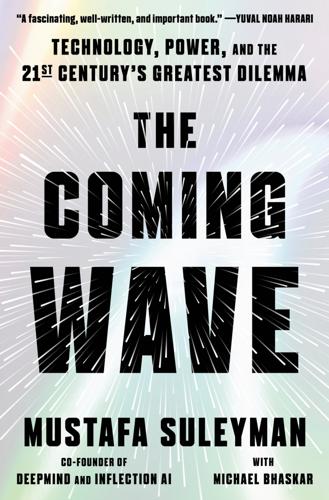
The Coming Wave: Technology, Power, and the Twenty-First Century's Greatest Dilemma
by Mustafa Suleyman · 4 Sep 2023 · 444pp · 117,770 words

The Price of Time: The Real Story of Interest
by Edward Chancellor · 15 Aug 2022 · 829pp · 187,394 words
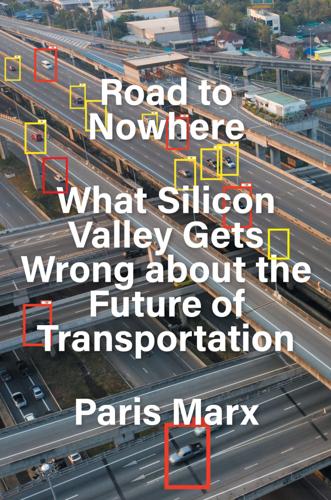
Road to Nowhere: What Silicon Valley Gets Wrong About the Future of Transportation
by Paris Marx · 4 Jul 2022 · 295pp · 81,861 words
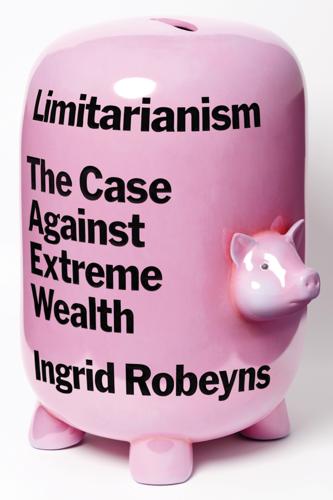
Limitarianism: The Case Against Extreme Wealth
by Ingrid Robeyns · 16 Jan 2024 · 327pp · 110,234 words
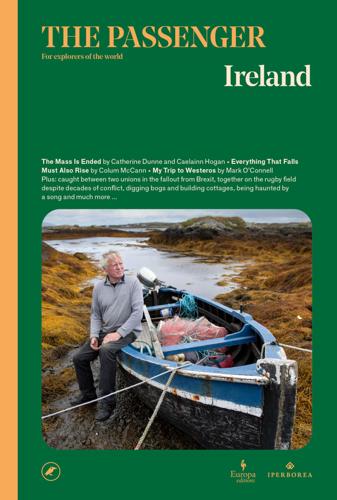
The Passenger
by The Passenger · 27 Dec 2021 · 202pp · 62,397 words
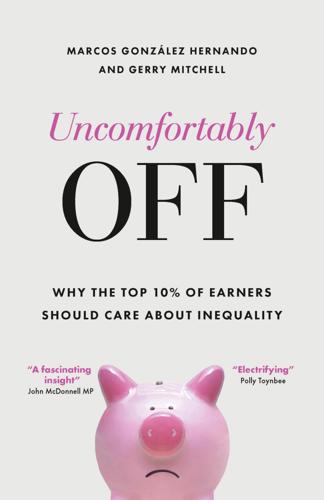
Uncomfortably Off: Why the Top 10% of Earners Should Care About Inequality
by Marcos González Hernando and Gerry Mitchell · 23 May 2023
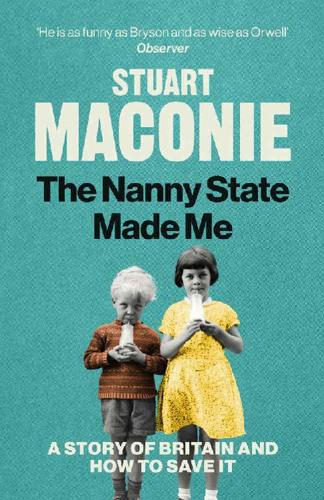
The Nanny State Made Me: A Story of Britain and How to Save It
by Stuart Maconie · 5 Mar 2020 · 300pp · 106,520 words
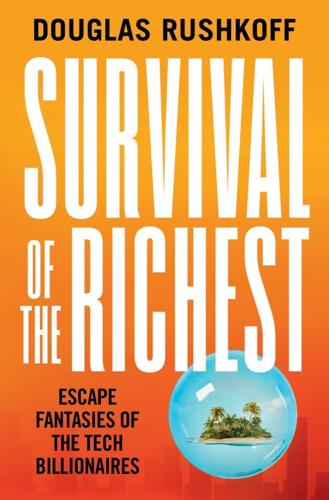
Survival of the Richest: Escape Fantasies of the Tech Billionaires
by Douglas Rushkoff · 7 Sep 2022 · 205pp · 61,903 words
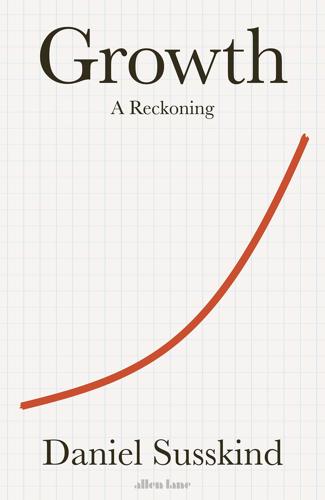
Growth: A Reckoning
by Daniel Susskind · 16 Apr 2024 · 358pp · 109,930 words
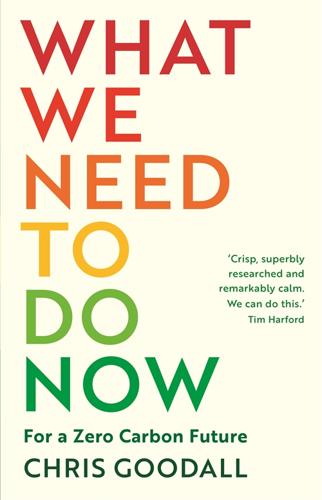
What We Need to Do Now: A Green Deal to Ensure a Habitable Earth
by Chris Goodall · 30 Jan 2020 · 154pp · 48,340 words

The New Snobbery
by David Skelton · 28 Jun 2021 · 226pp · 58,341 words